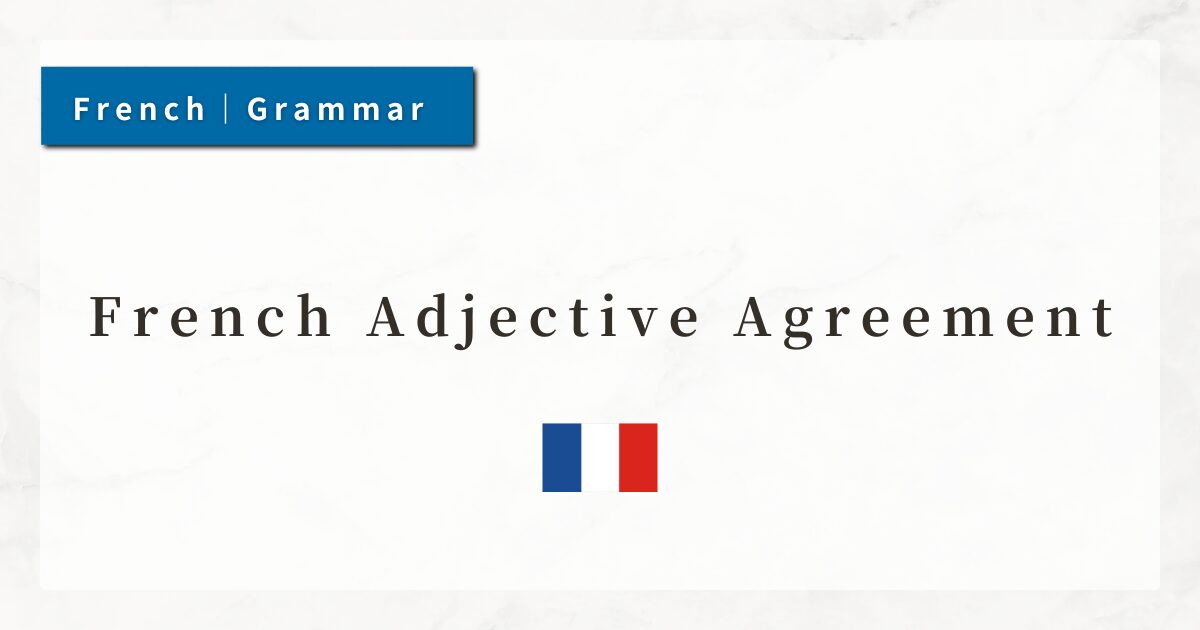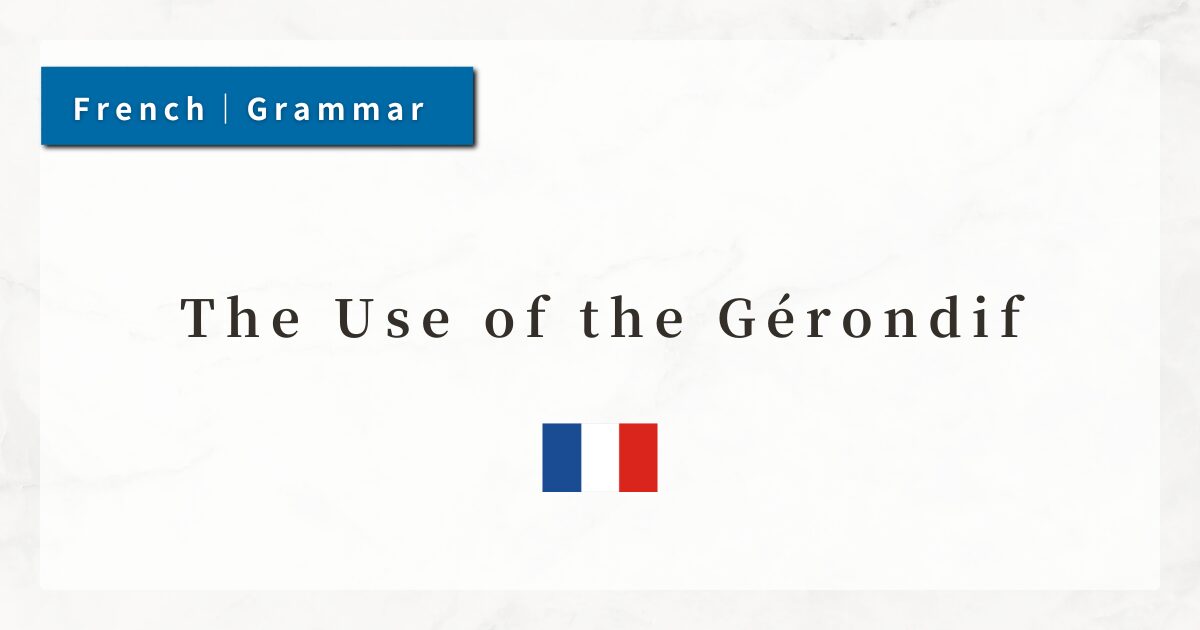#14 French Adjective Agreement | Gender (Masculine/Feminine) and Number Rules

In French, adjectives change their form to agree with the gender (masculine / feminine) and number (singular / plural) of the noun they modify.
This agreement is one of the fundamental rules of French grammar, and it is indispensable for forming correct sentences.
In this lesson, I will explain the basic rules of adjective agreement, common exceptions, and practical tips for natural usage.
1. What Is Adjective Agreement?
In French, adjectives must match the noun in both gender (masculine/feminine) and number (singular/plural). Unlike English, where adjectives generally do not change form, grammatical agreement is required in French.
| Noun Gender & Number | Adjective Ending | Example |
|---|---|---|
| Masculine singular | base form | un livre intéressant (an interesting book) |
| Feminine singular | + e | une maison intéressante (an interesting house) |
| Masculine plural | + s | des livres intéressants (interesting books) |
| Feminine plural | + es | des maisons intéressantes (interesting houses) |
- Determine whether the noun is masculine or feminine.
- Determine whether the noun is singular or plural.
- Adjust the adjective ending accordingly.
- Exception
→ adjectives ending in -e (e.g., jeune) do not change in the masculine/feminine singular forms.
2. Adjective Endings and Regular Patterns
Adjectives generally follow these rules, with the masculine singular form as the base:
- Feminine singular: add e
→ grand → grande (big) - Masculine plural: add s
→ grand → grands - Feminine plural: add es
→ grande → grandes
Adjectives ending in -s or -x do not change in the plural form.
- un garçon heureux
(a happy boy) - des garçons heureux
(happy boys)
3. Irregular Adjectives
Some adjectives do not follow the regular patterns. Many of these are common in daily usage.
| Masculine singular | Feminine singular | Meaning |
|---|---|---|
| beau | belle | beautiful |
| nouveau | nouvelle | new |
| vieux | vieille | old |
These adjectives undergo stem changes and must be memorized individually.
4. Special Forms Before Vowels and Silent “h”
Certain irregular adjectives have a special form when placed before a masculine noun beginning with a vowel or a silent h.
| Regular Form | Special Form (before vowel/silent h) |
|---|---|
| beau | bel |
| nouveau | nouvel |
| vieux | vieil |
These forms exist to smooth pronunciation and improve liaison.
5. Gender Priority in the Plural
When an adjective modifies a plural noun phrase, the following rule applies:
- If all the nouns are feminine, the adjective takes the feminine plural form.
- If at least one noun is masculine, the adjective takes the masculine plural form.
- des filles intelligentes
(smart girls) - un garçon et une fille intelligents
(a smart boy and a smart girl)
While this “masculine priority” rule is grammatically standard, there has been a growing movement in recent years toward more gender-inclusive language.
6. Adjective Placement with Nouns
In French, adjectives usually follow the noun. However, short and frequently used adjectives (beau, grand, petit, etc.) are often placed before the noun.
- une grande maison
(a big house) - un petit garçon
(a small boy)
- After the noun
→ tends to describe physical or objective qualities. - Before the noun
→ often conveys subjective evaluation or emotional nuance.
7. Adjectives That Change Meaning by Position
Some adjectives change meaning depending on whether they come before or after the noun.
This is an important nuance, even at intermediate and advanced levels.
| Before the noun | After the noun | Meaning |
|---|---|---|
| un ancien professeur | un professeur ancien | a former professor / an old professor |
| un grand homme | un homme grand | a great man / a tall man |
| une pauvre fille | une fille pauvre | an unfortunate girl / a poor girl |
- Adjectives placed before the noun often carry figurative or emotional meaning.
- Adjectives placed after the noun usually describe objective or physical characteristics.
8. Summary
- Adjectives must agree with the gender and number of the noun.
- Basic rules: add e (feminine), add s (plural), add es (feminine plural).
- Many common adjectives are irregular and must be memorized.
- Before vowels/silent h, special forms (bel, nouvel, vieil) are used.
- In plural, masculine agreement takes precedence if both genders are present.
- Adjective placement affects meaning:
before → figurative/subjective,
after → objective/physical.




